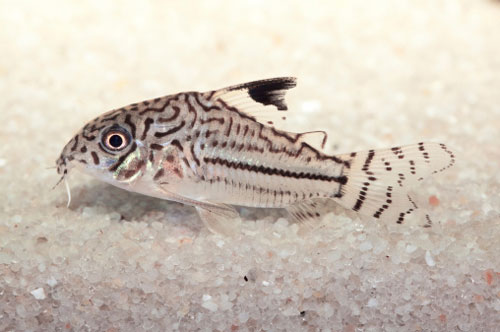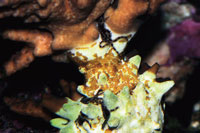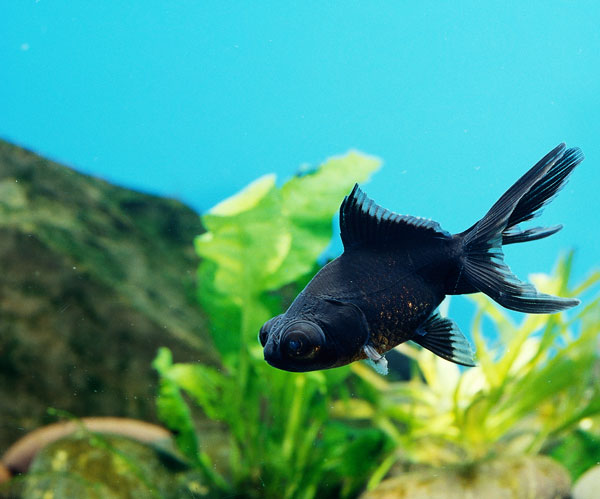So your beta fish won't eat?
It could be a sign of an illness.
Below are some of the most common illnesses of which one of the symptoms is that your beta fish won't eat:
- Fungal infection - If you can see white patches all over its body and head, and your fish is generally inactive, resting at the bottom of the tank, barely showing interest in food, then it may have a fungal infection.
- Rotting tail / rotting fin - If your fish's fins or tail show signs of deterioration and its body is lackluster, pale and your fish isn't eating, your fish may be sick.
- Ick - Beware that sometimes live frozen foods may contain live parasites. These parasites can infect the fish, causing it to break out with itchy dots all over its body, head, and even the eyes. If your fish is just not paying attention to its food, then you may have to treat your beta fish for parasites.
- Popeye -If your fish's eyeballs are bulging out of their sockets, it is due to bacterial infection from dirty water. Popeye is generally a symptom of more serious internal problems. Your fish may not have much of an appetite and thus your fish won't eat.
- Dropsy - If your fish's scales are standing upright, looking like a pine cone, then your fish has a bacterial infection, transmitted typically through consumption of live worms. Your beta fish won't eat, most likely, under these circumstances.
You have rescued your betta's life from the pet store's tiny cup. Now learn how to make your betta into the most comfortable, safe, and cared-for fish in the world. If you are a true betta fish lover or animal enthusiast in general, then you should know that taking care of betta fish involves a great deal more than just doing the bare minimum, which is to change its water and feed it. There is a lot more involved in properly caring for your fish, such as water quality, water temperature, the nature of the fish's habitat in terms of volume of space, rocks, plants, lighting conditions, whether or not you wish to breed your fish, and your fish's social interactions with other fish versus being kept in isolation. If you want to keep your fish healthy, beautiful, active, energetic, and alive for as long as possible, then you have to be willing to go the extra mile in order to provide a better quality of life for your fish. And it all starts with a little bit of education.
Taking care of betta fish can truly be an extremely rewarding experience, so why not go the extra mile and learn everything that there is to know about the proper care, feeding, and nurturing of our little marine friends, the betta splendens (otherwise known as siamese fighting fish)?
Who else wants a beautiful, healthy betta fish, swimming happily in a stunning tank, without having to spend a bundle or constantly worry about your betta's health?

 Would You Like The Supreme Fishing Experience? Heres The Reason Why It Is Essential To Carry The Mo
If what youre seeking out is considerably more fish thr
Would You Like The Supreme Fishing Experience? Heres The Reason Why It Is Essential To Carry The Mo
If what youre seeking out is considerably more fish thr
 Keep Your Aquarium Clean With These Tank Tools
Success in maintaining a freshwater system takes applied kno
Keep Your Aquarium Clean With These Tank Tools
Success in maintaining a freshwater system takes applied kno
 Five Tips for Freshwater Aquarium Success
You spent countless hours researching the latest products to
Five Tips for Freshwater Aquarium Success
You spent countless hours researching the latest products to
 Coral and Invertebrate Quarantine Procedures
Coral and Invertebrate Quarantine Procedures
 Fish and Fungus
Black Moor Q. I have two large black moor goldfish, one larg
Fish and Fungus
Black Moor Q. I have two large black moor goldfish, one larg